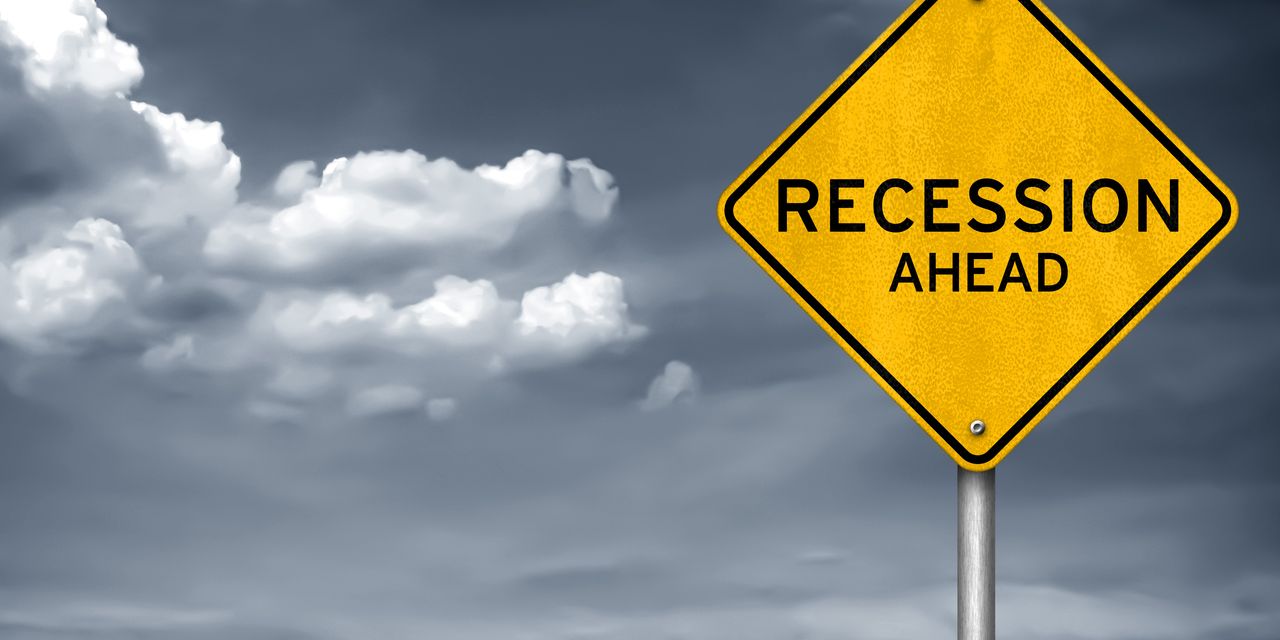Almost every CEO in America is getting ready for a recession and a majority of economists now believe a downturn is coming soon. Why such doom and gloom?
Chalk it up to rapidly rising U.S. interest rates — and the prospect they will go even higher than Wall Street expected just a few months ago.
Rising interest rates choke off growth by raising the cost of credit cards, mortgages, car purchases, business loans and any sort of borrowing that fuels an economy. If rates go up high enough, they typically trigger a recession.
The Federal Reserve is moving aggressively to try to regain the upper hand on inflation after underestimating the surge in prices for more than a year. The central bank’s inaction in 2021 helped pave the way for inflation to hit a 40-year high.
Racing to to catch up, the Fed since March has raised its key short-term interest rate to as high as 3.25% from near zero, where it sat for almost two years. Cheap money helped fuel runaway inflation.
The central bank also plans to lift the rate to a peak of 4.75% by next year — and many economists think it could go even higher.
The surge in interest rates is occurring at a speed that most U.S. adults have never experienced.
“The last time [Fed] policy delivered this much pain over a 12-month horizon was in 1980, which resulted in a severe economic downturn,” noted chief economist Aneta Markowska of Jefferies LLC.
So far most of the U.S. economy has weathered higher interest rates, but the warning signs are evident, especially in the housing market.
The rate on a 30-year mortgage has soared to almost 7% and hit a more than 20-year peak. By contrast, mortgage rates dipped below 3% just a little more than a year ago.
The shock effect of soaring mortgage rates has taken a toll on home sales and home construction. Spending on home furnishings, appliances and other big-ticket items that new homeowners need have also fallen off.
The housing market gives a taste of what the broader economy is likely to face, analysts say.
Households are expected to reduce spending in response to higher borrowing costs. Companies would also reduce investment. And if business sales and profits tail off, layoffs and rising unemployment would follow to complete a vicious cycle.
In public remarks, top Fed officials say they think a downturn can be avoided. Yet they also believe stubbornly high inflation poses the greatest risk to the long-term health of the economy.
“Many participants emphasized that the cost of taking too little action to bring down inflation likely outweighed the cost of taking too much action,” the minutes of the Fed’s last big meeting in September said.
Economists say the fear of falling short in its fight against inflation underscores the central bank’s resolve and explains why a recession is increasingly likely.
“It’s hard not to interpret this sentiment as anything but a willingness to sacrifice economic growth for the sake of restoring price stability,” said senior economist Bob Schwartz of Oxford Economics.
The Fed’s own economic forecast hint at the pain to come.
The bank estimates barely any economic growth in 2022 and a sluggish economy in 2023. Unemployment is also forecast to rise to 4.4% next year from the current level of 3.5%.
The Fed is walking a tightrope, economists say, and is probably understating the damage to the economy from its tough new medicine.
“The Fed knows they are risking a recession by hiking so aggressively,” said chief economist Bill Adams of Comerica Bank in Charlotte, N.C. “But they would prefer a hopefully mild recession now to allowing inflation to get even worse, ultimately forcing them to bring on an even more severe recession down the line.”
That’s why a majority of economists now think a recession is inevitable, perhaps starting before the end of the year.
Some 63% of economists surveyed by The Wall Street Journal predict a recession, compared to less than half just three months ago.
Business titans are even more pessimistic.
A stunning 98% of CEOs say they are preparing for a recession in the next 12 to 18 months, a new poll by the Conference Board shows.
While many predict a short and shallow recession, some economists think a downturn could last more than a year and be deeper than expected.
Markowska pointed out that the Fed’s rate hikes so far have done little to slow the economy or tug inflation lower. But eventually they will slam the economy hard.
Once that happens, she said, the Fed is likely to be tardy in reversing the rate hikes because it wants to make sure inflation is vanquished.
Indeed, senior Fed officials have repeatedly stressed they plan to hold interest rates high for awhile before moving to lower them. The Fed aims to drive inflation back down to pre-pandemic levels of 2% or so a year from the current 8.2% rate.
The Fed is likely “to be slow to respond to economic weakness,” Markowska said, “which will likely prolong the next recession and exacerbate its severity.”



